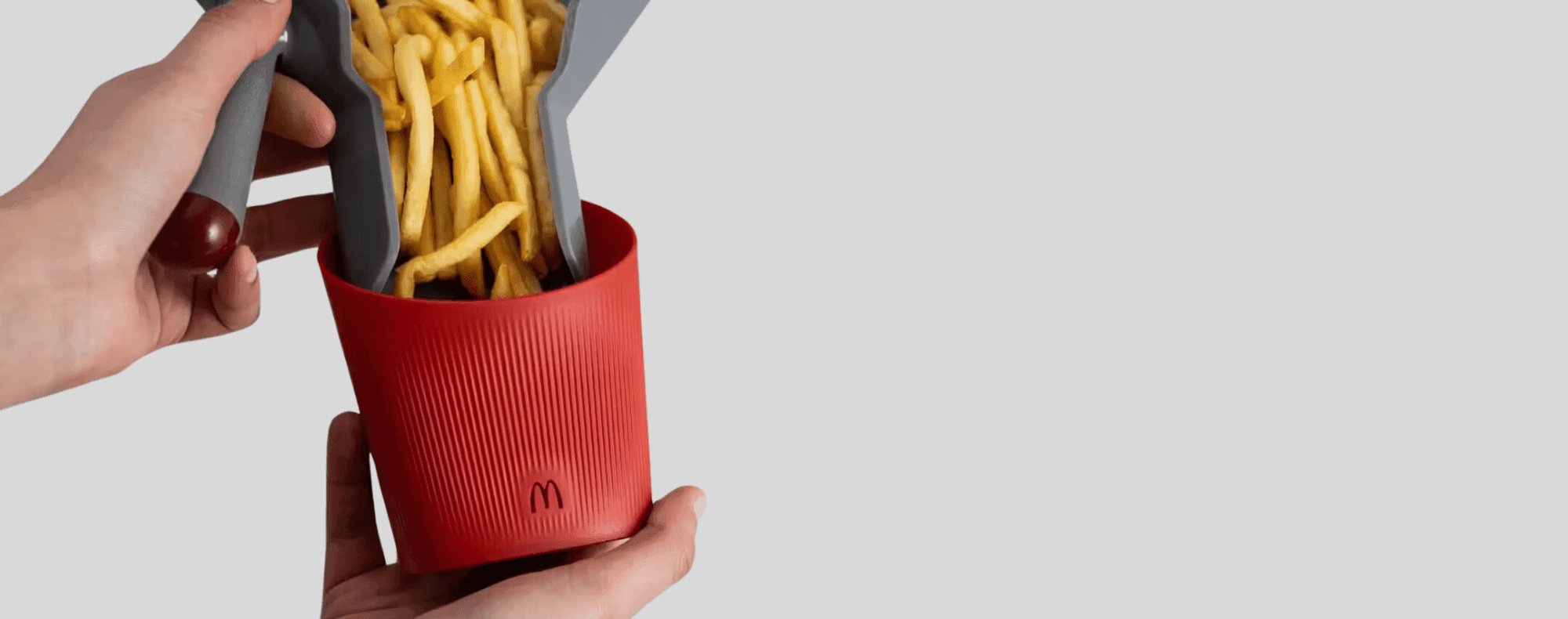In the ever-evolving landscape of sustainability, McDonald’s, the world’s largest fast-food company, finds itself at the forefront of a heated discussion surrounding the E.U’s push for reusable packaging. This move, aimed at promoting environmental responsibility, has raised questions about its impact on McDonald’s longstanding efforts to reduce plastic use in its restaurants.
Concerns over the E.U.’s insistence on reusable packaging – What’s Happening?
Fast-food giants, with McDonald’s leading the charge, are expressing concerns over the E.U.’s insistence on reusable packaging.
According to Bloomberg News, McDonald’s argues that such a mandate could undermine the progress they’ve made in minimizing the environmental impact of plastic within their establishments.
Currently, 94% of McDonald’s packaging in Europe is fiber-based, predominantly sourced from wood fibers. While plastic is present in the liners for hot and cold cups, the company is actively working on developing a plastic-free cup.
Why is it Important? – The clash between the E.U.’s sustainability goals and McDonald’s
The importance of this issue lies in the clash between the E.U.’s sustainability goals and McDonald’s efforts to reduce plastic usage.
Jon Banner, McDonald’s Global Chief Impact Officer, emphasizes that compliance with E.U. mandates would force the reintroduction of plastic into their restaurants, contradicting their commitment to plastic reduction.
Banner explains, “Now, as a result of reuse, we’re going to have to end up reintroducing plastic to our restaurants.”

What Can be the Effects? – McDonald’s concerns
McDonald’s research indicates that reusable cups would need 50 to 100 reuses to surpass the environmental benefits of single-use products. However, the practicality of achieving such high reuse rates is in question.
In experiments across European countries, including Germany and France, McDonald’s found that reusable containers, even with a €2 deposit in place, faced challenges in being returned for reuse.
Where Do the Cups End?
The fate of reusable cups, once distributed, raises questions about their final destination. In Germany, where McDonald’s is obligated by law to provide reusable cups for takeaway meals, approximately 70% of these cups are never returned.
This leaves the company grappling with uncertainty about whether these cups are recycled, disposed of in landfills, or reused in an unregulated manner.
According to a Kearney study, the priority should be to enhance recycling infrastructure for dine-in scenarios, suggesting that reusables might not be the optimal solution for takeaway situations.
Banner points out the complexity of the issue, stating, “Of course, the idea of reuse seems like the obvious solution. But it’s more complicated than that.”
As the debate continues, finding a balance between environmental responsibility and operational feasibility remains a crucial challenge for one of the world’s most iconic brands.
